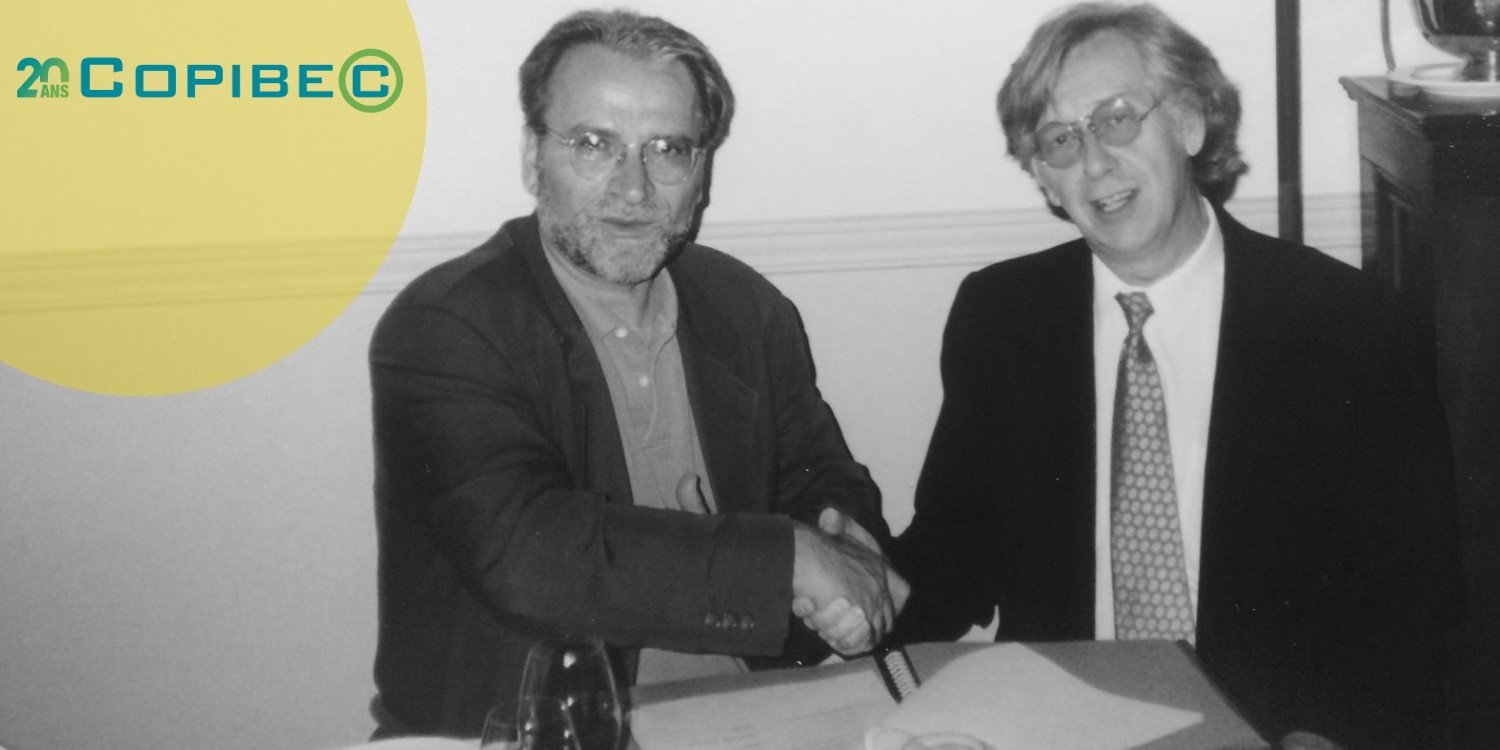
Please note that this article, published in 2017, may contain out-of-date information.
One for all, all for one
Associated with Alexandre Dumas’ famous musketeers, the expression means solidarity. 20 years ago, Quebec’s authors and publishers gathered around a table to discuss collective management, and came to the same conclusion: they had to stand together and pool their expertise within a collective society to protect their rights and face the digital challenge that was already on the horizon.
At the time, the situation in Quebec was unique and... a little unusual! It was the authors’ union that managed the reprography rights file (as it was called in those days), and even took the initiative. But it’s also the union that intervenes with publishers in the event of a dispute between an author and his or her publishing house. So it happens that the syndicate storms against a publisher whose reproduction rights it defends and manages. For reprographic rights, an advisory committee brings together authors and publishers, but it is the Board of Directors of the Union des écrivaines et écrivains québécois (UNEQ) that makes the decisions, adopts the licenses and sets the terms and conditions for royalty payments.
Over the years, the file has become increasingly complex: it has become necessary to sign new agreements with a larger number of foreign management societies, exchanges have also begun with journalists and newspaper publishers, data on reproduced works is diversifying and becoming increasingly complex to process... For the UNEQ and the Association nationale des éditeurs de livres (ANEL) it is becoming clear that a new entity, independent of the writers' union, must be created, with a board of directors on which representatives of the various authors’ and publishers’ associations will be present.
There will be lengthy discussions to define the new management company’s mission and modus operandi. At the outset, everyone looks at each other with a certain amount of mistrust, each in his or her own camp. We have to learn to trust each other, to pool our knowledge. We had to listen, practice the art of compromise and create new ways of saying and doing things.
The Copibec model is taking shape. It will be based on a balance between authors and publishers, who will have the same number of representatives on the Board of Directors. The presidency of the society will alternate between a representative of the authors and a representative of the publishers. Royalties will be distributed by the collecting society on an individual basis, according to data linked to the actual use of the works.
In November 1997, Louis Gauthier, then President of UNEQ, and Antoine del Busso, President of ANEL, signed the agreement that gave birth to Copibec. And off we go! The following spring, the new company began operations on rue Saint-Denis (in the former premises of the Union des artistes). It could count on a small core of employees (4 or 5) and on the first modules of a computerized management system, the development of which had only just begun.
Since then, many pages have been written. Copibec now manages over 600 reproduction licenses negotiated with various partners: ministries, universities, CEGEPs, professional associations, private companies, non-profit organizations, and more. Every year, thousands of titles are added to its repertoire, and thousands of authors of novels or textbooks, freelance journalists, scientific writers, playwrights, translators, illustrators and publishers receive royalties for the reproduction of their texts or images.
From the solid foundations laid by UNEQ, collective management has come a long way. The pooling of resources is now reflected in the development of new projects and new services for rights holders and users alike. For example, with its platform SAMUEL, Copibec and its publishing partners are innovating by making a wide variety of documents available to teachers in digital format.
Solidarity is also evident in the voices of Copibec and its member associations, who are calling for better copyright protection and a law that protects, without multiple exceptions, the right of creators to be fairly remunerated for the use of their words, their drawings, their research and their imagination. The erosion of copyright must stop, so that the sums collected by Copibec do not decrease again and again, with the help of educational establishments who believe that creative work is an open bar. Creators must also get a fair share of the commercialization of culture by the big platforms. Not just peanuts, as is the current trend.
Don’t think that the life of a management company can be compared to that of a long quiet river. Of course not! There are discussions, arguments, hesitations and barricades! What do you want? Collective management is a fine gamble, one that allows different groups to work together: the visual arts, educational publishers, newspaper publishers, literati, cultural periodicals, freelancers and content users. Ideas about what to do and what to say sometimes diverge, but all have a common goal: to facilitate access to works while ensuring that all authors and publishers, both well-known and lesser-known, receive fair remuneration for the use of their works. All are committed to defending copyright.
20 years ago, the Copibec adventure began.
Also read:





